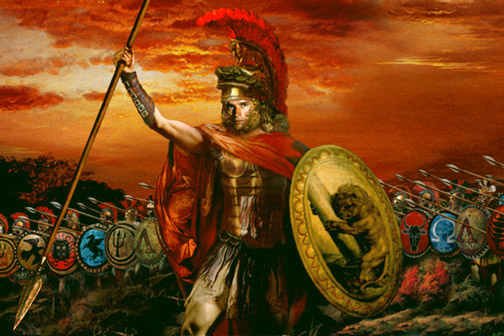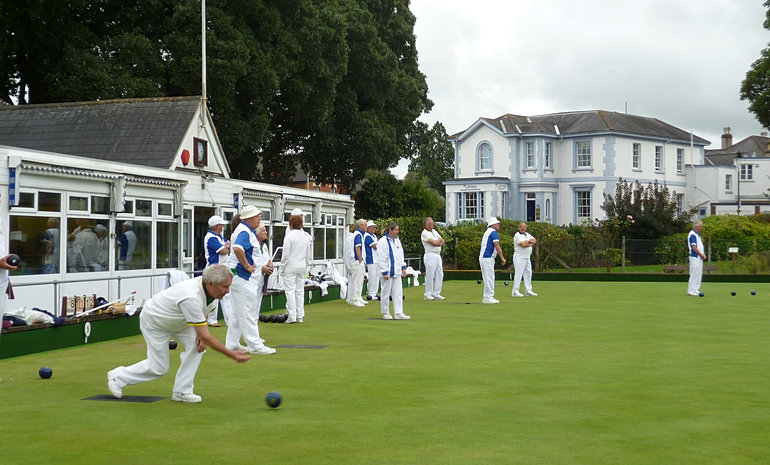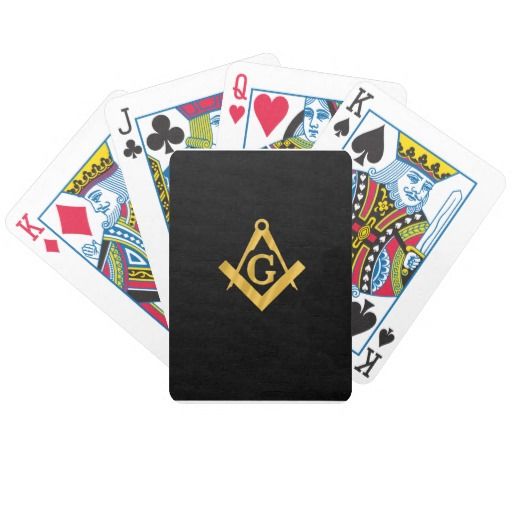DYNASTIES have long been clung to by those who are in place: being central to the power, the stranglehold of an empire. An empire may be sovereignty in respect to geographical regions, or more precisely assumed lordship over a group of people.
There are many who have been positioned as leaders, who from past experience carry on as such trying to re-establish more of the same pecking order with them as chief pecker. If it cannot be achieved through the more simple forms of power endorsed - respectfully money - other means will be found in order to cajole a community to subservience.
It is novel to find that there are folk who seek authority and come to such unquestioningly when won over. Often there are mutual ideals bandied about here and there: some pleasing enticements, some promise of personal gain.
Usually the leader of such a group, whether it be local council or local church, submits them to the whims of their beloved, even if degradation is part of the privy to become members. It is uncomfortable to cite these distinctions, but necessary in the consideration of equality, equality in its true perspective.
Usually the leader of such a group, whether it be local council or local church, submits them to the whims of their beloved, even if degradation is part of the privy to become members. It is uncomfortable to cite these distinctions, but necessary in the consideration of equality, equality in its true perspective.
Whilst some individuals are certainly capable of bearing far more than others and by heading-up a particular group do serve that group with talents and expertise required, it is also a temptation for them to misinterpret their status and their standing, and also that the others may do the same.
Granted, there is always a Queen bee, and that Queen bee is distinguishably separate and different. But the Queen bee does not need to fall upon artificial means for establishing her role, and presume what she is not. She is what she is because of what she does and this is apparent.
In the case of men who assume the roles of leadership, many are appointed and continually overstate their position with irrelevant acts that pertain more to their standing, than their actual work effort. Badges and uniforms may have practical usage, but moreover are statements and license for a certain superiority assumed. It is quite a bizarre quirk that men in these times still feel the need for ego-identification in this way.
Granted, there is always a Queen bee, and that Queen bee is distinguishably separate and different. But the Queen bee does not need to fall upon artificial means for establishing her role, and presume what she is not. She is what she is because of what she does and this is apparent.
In the case of men who assume the roles of leadership, many are appointed and continually overstate their position with irrelevant acts that pertain more to their standing, than their actual work effort. Badges and uniforms may have practical usage, but moreover are statements and license for a certain superiority assumed. It is quite a bizarre quirk that men in these times still feel the need for ego-identification in this way.
It is necessary for men to be able to be comfortable in almost any attire and greet others in like manner. There are stories which tell of this: stories of beggar-like men, or old wise women, who at the roadside are met by an unsuspecting soldier. Stories of the 'Frog Prince' and also 'Cinderella' - all which speak to us of first impressions and soul impressions, pertaining to judgments which are more relevant.
Costumes are insidious - they represent very little indeed. It is understandable, commendable for that matter, that one should assume a neat and tidy appearance or even embellish one's self with a flair of individuality. To wish to appear to 'look good' is either one step towards self-betterment or two steps towards the deceit of conceit. However, that which is worn not for the sake of the individual and their harmony, but rather as a statement of pomposity and stature, is at best silly.
Replication within a group is viewed as respect to that group and symbolic of the tenuous fibers which cross-link each member throughout; followed by certain customs ordained and patterns of behavior acceptable to the leader and the people in the group.
To any outsider who may happen upon such a group (be it Bowling Club or Masonic Lodge) one immediately finds uncomfortable the social statutes that pertain to participation. It is not the theme or the spirit of the group which is so off-putting, but rather all the accessories that accompany the purpose. If one views any club or group of people who have gathered with mutual interest in a particular domain, one will find that usually the organizational demands and the periphery conduct has consumed most of the time given to that group with uneven proportions.
To any outsider who may happen upon such a group (be it Bowling Club or Masonic Lodge) one immediately finds uncomfortable the social statutes that pertain to participation. It is not the theme or the spirit of the group which is so off-putting, but rather all the accessories that accompany the purpose. If one views any club or group of people who have gathered with mutual interest in a particular domain, one will find that usually the organizational demands and the periphery conduct has consumed most of the time given to that group with uneven proportions.
For example: The Bowling Club -
Many folk gather (or so they say) for the love of the game, in this instance bowling. They love also the uniforms, the badges and the trophies, the speeches and the afternoon tea, along with the afternoon gossip. Then there are meetings of designating positions, for there are those required to organize and those who must organize the organizers, and secretaries to the organizers of the organizers, and badges to be bought by someone for the echelon, arguments as to presidencies, Christmas parties and tournaments. None of which relate to the actual playing of the game; and in reality the participants of which, have a great interest in social politics with a little bowling recreation on the side. And so most suitably, one could call the group (of a particular suburb or town), 'The White Faction of Social Discourse and Discovery' or perhaps, 'The Lonely Hearts Club'.
When viewing a club one may call a spade a spade. Look to the heart of the club and find the diamond within. And then decide.
One does not suggest the abandonment of societies, but merely that an overview is essential, especially when conduct is claimed to be of first priority to that particular group. So many who might enjoy the game of bowling might be rebuked by the nature of those periphery activities that the club is so immersed in. They are simply turned away - especially if their desire was to simply play bowls.
Groups are open to misrepresentation. Clubs which are spiritually inclined, with a mix of serious and no-so-serious members, can unfortunately become entangled within limitations that should perhaps more correctly fall under a totally different name. No organization is beyond constant review.
One might ask, "If the people are happy, who cares? Who cares if the name and the activities do not correspond?" Or, "Who are we to judge?" And it is true to say that within the system which best supports an army, no soldier may question the authority of his officer. There is no provision for individuality or conscience and it is deemed acceptable to place infinite trust and responsibility with he whom we might call the 'General'. But is the way of conformity and denial of questioning the way of the Christian soldier? Too often men confuse the superiority of men with the authority of the One who truly gives back all respect paid. The dangers of conformity are the dangers of 'backing the wrong horse', so to speak.
Complacency is comfortable: it is an act of denying the conscience. But men must afford time to review all matters for themselves, and weigh them within their own judgment. Without self-questioning and the habit to cast further inquiries, they shall elevate on false premise only those attributes which in the end are meritless because they are unworked for.
Complacency is comfortable: it is an act of denying the conscience. But men must afford time to review all matters for themselves, and weigh them within their own judgment. Without self-questioning and the habit to cast further inquiries, they shall elevate on false premise only those attributes which in the end are meritless because they are unworked for.
This is not criticism for criticism's sake. It is asking for careful and cautious inquiry, when one meets with an awesome body of men that for whatever reason have gathered under one name. For all groups of men who give over their individualities and presume a particular identity, submit to some other in the association of those conformities. It is to great (as in large) consequence, when this is put to activity.
Therefore, it is reasonable to ask the true nature of the operation and to be clear with honesty from the outset, and be vigilant that it remains true to its purpose or else restated for what it is.
Therefore, it is reasonable to ask the true nature of the operation and to be clear with honesty from the outset, and be vigilant that it remains true to its purpose or else restated for what it is.
There is a serious aspect to every activity of Man. Jokes aside, most problems occur because of the deficit of self-consciousness and awareness with honest review, that one may be better equipped with discernment before engaging in any conduct.
Conformity requires that men sleep, that their awareness is negated through habit, through ritual, through the similarities that if they place themselves beneath another, another may do their thinking for them. Although we are equally responsible, one may begin to perceive the dangerousness of compliance.
So many times we do bear from others and give over to their demands - slightly or greatly, we comply and conform. It is one thing to heed one's conscience, and perhaps reluctantly comply; it is better to love one's conscience and love one's duty, and give with complete love. But it is painful to be motivated against one's inner reckoning and force the individuality out from ourselves - and there are so many temptations to man to coerce him to do just that.
To lose one's individuality, to lose what consciousness we have- one can perceive this submission in so many modes of conduct. That we might be more perfect is to realize consciously that perfection. What is the point of perfection if we are to sleep through it? Or if another pre-attains it, on our behalf? Association is not enough. We cannot look to another man and truly expect a little of the glamour to rub off, that he may artificially do our work for us!
Politeness does not need to go out the window. For in regards to the conscience, we regard its endeavors to meet with people kindly. The conscience will dictate much more about politeness, than conforming to table manners deemed acceptable. So true individuality does not mean to say that we ignore our brothers, and do as we please. True individuality means that we consult our conscience accordingly, rather than conform to another's. That we seek to err on the side of God, than the side of another man.
We try so hard to please others, but there are times when this causes pain to both ourselves and to them. We may do injury to someone by placing more burden of adulation on their shoulders, by asking them to be responsible, when in fact they do what they can, in the way they know how - no more and no less.
Who we choose to associate with and encourage with the submission of silence or with encouragement which is deceitful, that too may be injurious. One must learn to find the ways (tactfully) which severely assess and discriminate that which says it is from that which it really is.
This is what was meant by our alluding to a society which defined 'tea and biscuits' in its articles of association, that all men may partake as 'plate-bearers' and take their turn in the boiling of the water.
This is what was meant by our alluding to a society which defined 'tea and biscuits' in its articles of association, that all men may partake as 'plate-bearers' and take their turn in the boiling of the water.












No comments:
Post a Comment